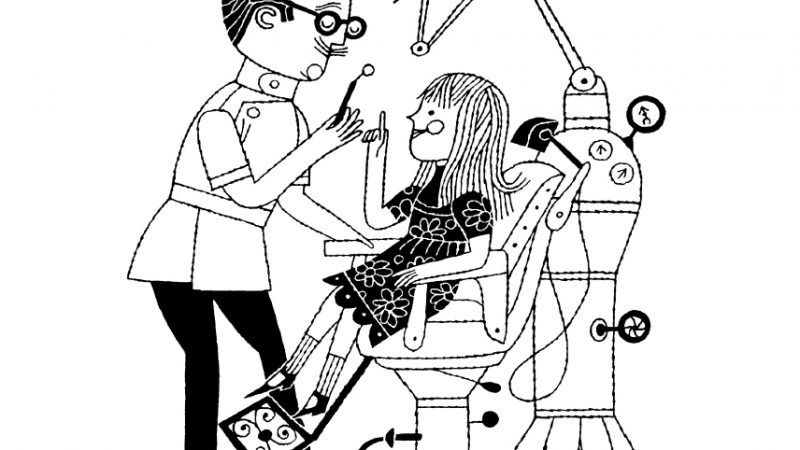America Needs More Dentists
Too bad we won't let them come here from overseas.

America doesn't have enough dentists, and Ahmed El Zawi could be part of the solution—if only the federal government would let him.
El Zawi emigrated from Libya to attend the University of Washington's dental school. He graduated in March 2017 and is licensed to practice dentistry in Washington state and Virginia. But it is illegal for El Zawi to work as a dentist—to work at all, actually—because his student visa expired in March. Though he found an employer willing to sponsor him for an H-1B, his name was not selected in the annual lottery that determines who receives one of those valuable government permission slips.
El Zawi was able to renew his student visa to stay in the country legally. He's taking business classes while biding his time until next year's H-1B lottery, when he plans to apply again. "Right now I'm spending money and not earning money," he says. "I would much rather be working."
We should want him working as a dentist, too. As of December 2017, there were more than 62 million Americans living in what the U.S. Department of Health and Human Services (HHS) defines as Dental Health Care Professional Shortage Areas—census tracts with fewer than one dentist per 5,000 residents. The department estimates that an additional 10,800 dentists would be required to eliminate the shortages completely. And the problem is getting worse: In 2013, the number of Americans living in areas with inadequate access to dental care was 45 million.
Because demand vastly exceeds supply, dentists can take their pick of locations and clients. They tend to cluster in relatively wealthy suburbs, and as a result, the shortages identified by HHS are overwhelmingly in inner cities and rural areas.
There's a class divide as well. According to a 2014 survey by the American Dental Association, only about one-third of dentists accept patients on public insurance programs such as Medicaid.
The Pew Charitable Trusts estimate that more than 800,000 Americans were treated in emergency departments in 2009 for problems related to tooth decay. All those E.R. visits cost the health care system more than $110 million.
The H-1B visa process allows no more than 85,000 visas to be awarded each year, but 190,098 applications were received in 2018, according to U.S. Citizenship and Immigration Services. The caps are politically designed to limit how many high-skilled immigrants can come to the country to compete with Americans for jobs.
But when it comes to dentistry, there is no need for protectionism. In fact, protecting American interests would actually mean importing as many non-U.S. residents as we can.
